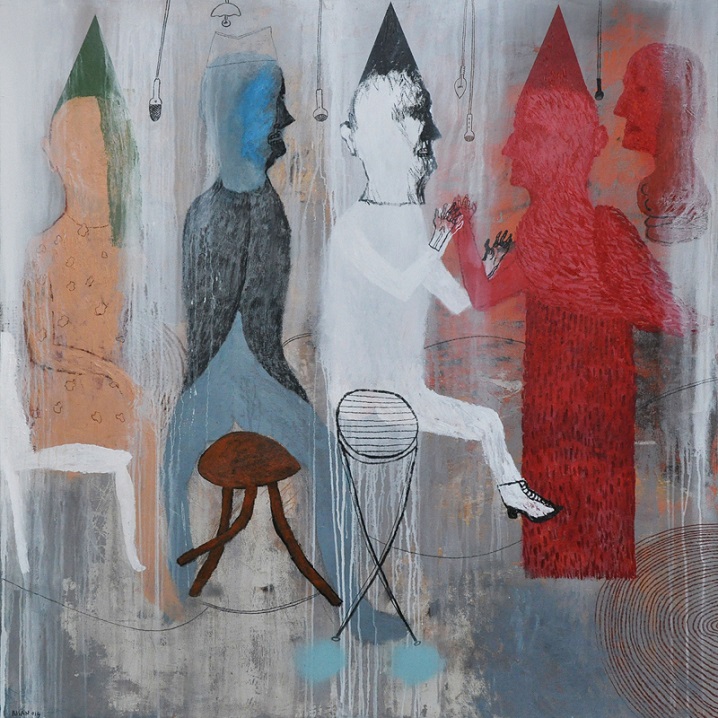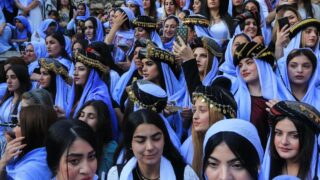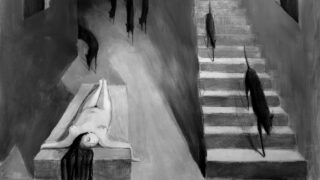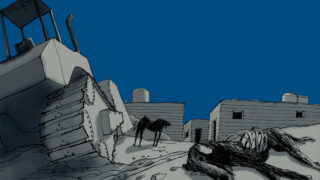The politician is deeply absorbed in his phone. A constant flow of notifications popping up, and he can’t seem to ignore them.Wearily, he tells me about his Whatsapp ‘Group Chats;’ their intensity, the way they allow him a closer view of the miseries of his constituents. On the flip side, he says they also make him more easily available to the people, which can be a burden. Politics have devoured half of his life, he says, and the Whatsapp group chats will swallow what’s left.
In truth, Iraq’s major political leaders do not often participate in the Whatsapp discussions that include a ‘mixed population’; that is, those with younger or less important politicians and journalists. These men still use the app, but are more frequently to be found in group chats which are more restrictive and less diverse. In which case the Whatsapp groups become a space for plotting conspiracies and giving orders.
Whatsapp group chats gained their prominent place in politics during the last parliamentary elections in 2014, when several young activists who were nothing more than supporters or low-ranking members of big political parties launched and moderated political debates on Whatsapp. Important politicians would sign on to one group or another to offer their support and give it increased relevance. Even if they participated little in a direct way, they nevertheless continued to follow the discussions and occasionally intervened when they thought necessary.
Rafidin [Mesopotamia] Center, Wajha News and Ghadan [Tomorrow] are among the well-known group chats which over the course of a couple of years have evolved into institutions with influential leaders and activities. Some of the groups have organized real-world seminars to continue the debate on digital political discussions.
There are chat groups on Whatsapp which are actually in charge of coordination between senior state employees and their subordinates. The Prime Minister himself is a member of numerous chat groups, one of them exclusive to himself and his other ministers, another exclusive to high-level army officers.
The little that we know of these small and secretive groups suggests that the tone of the discussion in them is anything but genteel and polished; after all they are not official venues and if feelings get hurt…well, there is no one to complain to really.
It is said that ministers and army commanders who lose their posts find themselves ejected from their WhatsApp groups just as speedily as they lose their offices. Public inspectors from various agencies around the country have their own group chats, as do most civil servants; their presence in the Whatsapp chats is frequently more useful than it is in the actual institution they direct.
When the battle of Mosul began, numerous WhatsApp media groups morphed into two gigantic blocs. The first marshalled journalists from several television channels and media networks, most importantly the publicly funded “Iraqi Media Network” into what became a ‘National Alliance.’ The other bloc, composed of those associated with Shi’ite religious TV channels, describes itself as the “Islamic Alliance.” Important alliances which were in the beginning nothing more than Whatsapp chat groups.
On Dec. 10, journalists from Iraqiya TV fell into a trap after they published news about the ‘assassination’ of Sunni parliamentary deputy Abdul Azim Ajman on his way to Basra. Later, more reliable reports confirmed that in fact he had suffered a deadly car accident and that the circumstances in his death had raised no criminal suspicions: it was a great embarrassment to Iraqiya. It turned out that the false information about the ‘political assassination’ had been disseminated by the former governor of Diyala Province in a closed Whatsapp Group Chat.
The small committee in charge of issuing official media releases regarding the battle for Mosul, the ‘War Media Cell’ gathers much of its material from raucous and lively group chats. The green app fills up daily with news of military maneuvers and movements, of victories or setbacks on the battle-fronts, with the participation of war correspondents, analysts, military commanders who write from the front line and from behind the scenes…
And most of the time, the discussions continue day and night. The trending topics are always those related to the Iraqi political scene, whether it be some important reconciliation or talk of internal feuds among the political blocs which run the country. There are also discussion of laws and legislation, political campaigning, organizing on neglected issues like displaced people and the victims of wars.
Among the most notorious political group chats is the Rafidin Center, founded by a young political activist named Zayd Attalaqni; it counts among its members former Prime minister Nuri al Maliki, as well as [political figures]Rafi Al Issawi, Saleh Al Mutlaq and Osama Al Nujaifi; their conversations often consisting of public clashes and overreactions to one another’s’ pronouncements.
As for the political parties and other organizations, well, each has its own private group chat, with little diversity of opinion but plenty of secrecy; here they can gather together with one another: politicians and journalists, religious leaders, tribal leaders, businessmen and former senior officials.
And the activists who spend their days opposing the government or the parliament or the judiciary have their own groups on WhatsApp as well, where they plan their campaigns and rallies. Here the drivers of soft power gather as well: famous writers, artists, journalists and peace activists. These groups have their own politicians and leaders who sympathize with their causes, supporting and financing the demonstrations and protests they organize.
This is the present landscape of Iraq’s political life, outside of the official channels. The diversity of those who participate in the discussions gives them a national character, even as it opens the door to insults, disrespect and endless feuds.





